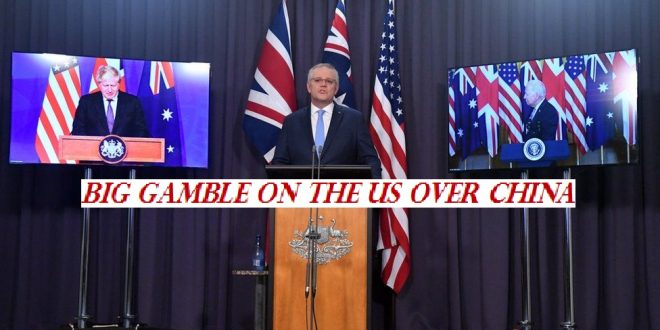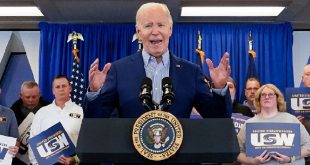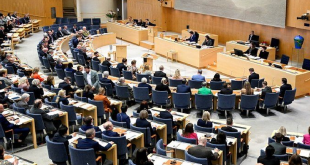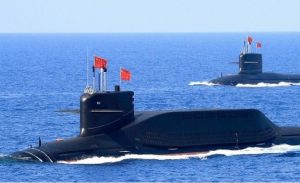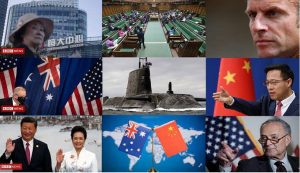23-09-2021
By SJA Jafri + BBC
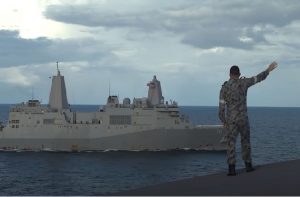 ISLAMABAD/ NEW DELHI/ CANBERRA/ NEW YORK: By signing the Aukus pact last week, Australia revealed where it stands in the world: It is taking the side of the US over China.
ISLAMABAD/ NEW DELHI/ CANBERRA/ NEW YORK: By signing the Aukus pact last week, Australia revealed where it stands in the world: It is taking the side of the US over China.
It’s a definitive move for a country in the Asia-Pacific region, experts say.
The security deals with the US (and the UK) gives Australia a huge defence upgrades from the world’s most powerful military but it’s a gift with strings attached. And there is debate over whether such a decision – made without public consultation – will play out in Australia’s national interests.
Shift from the middle ground
As China has grown in power, it has begun to challenge US dominance in the Asia-Pacific region.
China has built the world’s largest navy and has become increasingly assertive over contested areas such as the South China Sea.
Australia had long maintained it didn’t have to choose between the two powers, but in recent years its attitude towards Beijing has hardened.
China has been suspected of interfering in Australian politics and of cyber attacks on key institutions.
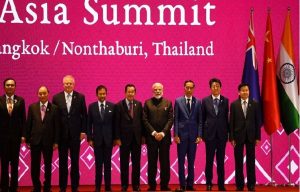 Tensions were further inflamed last year when Australia called for an investigation into the origins of the coronavirus. A flurry of Chinese sanctions against Australian exports followed.
Tensions were further inflamed last year when Australia called for an investigation into the origins of the coronavirus. A flurry of Chinese sanctions against Australian exports followed.
That was Australia’s “a-ha” moment, says John Blaxland, an international security professor at the Australian National University.
“What happened was the dawning realization that all these things that had proceeded weren’t benign,” he says. “We were talking about a country that had become surprisingly hostile.”
Australia realized it needed to improve its defences – and quickly.
The main advantage
On that front, Aukus is a big coup for the country. The pact will give Australia access to nuclear-powered submarines and long-range missiles from US technology.
This “super-enables an otherwise pedestrian middle-ranking military capability of little consequence beyond its border”, says Prof Blaxland.
In the event of conflict, Australia would also for the first time have the ability to strike adversaries from a distance.
“This is about giving the Australian Defence Force a capable edge in a region where the capability of our own defence force when matched against China is going backwards,” said Richard Maude, a former top Australian security official and now policy director at Asia Society Australia.
For the US, it’s a pretty big deal to share the crown jewels of its defence technology but Washington views this “one off” trade as a crucial move in wider efforts to keep China at bay, experts say.
As China projects naval power into the region, Australia’s fleet, albeit small and some way off being completed – will be some form of counter alongside roving US forces, they add.
“We’re trying to play catch-up by developing a credible deterrence to reduce prospects of war,” says Prof Blaxland.
“Because at the moment our deterrence is simply not credible, China can essentially act against us with a degree of impunity. That is becoming politically intolerable.”
What are the disadvantages?
Critics argue Australia has given up its strategic ambiguity and made itself a bigger target because of the pact.
“The way in which it was announced rips away any pretence that Australia was not firmly on the side of containing China militarily,” says Prof Allan Gyngell, president of the Australian Institute of International Affairs.
Analysts warn Australia will probably face more economic retaliations from its biggest trading partner.
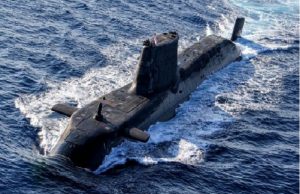 “The countries were a long way off returning to diplomatic normality and this only exacerbates that,” says Dr Lai-Ha Chan from the University of Technology, Sydney.
“The countries were a long way off returning to diplomatic normality and this only exacerbates that,” says Dr Lai-Ha Chan from the University of Technology, Sydney.
Others say Aukus also locks Australia in with the US for generations to come.
In the future, Australia may struggle to retain autonomy over decisions in its best interests. It will be reliant on foreign nuclear technology.
“We can’t operate the submarines ourselves. So in effect we are ceding some of our sovereignty to the US, and maybe Britain,” Prof Gyngell says.
“It will become therefore impossible for the major strike capacity of the Australian navy to operate without a US veto.”
He says it also returns Australia to being “a smaller partner in the Anglo-sphere”, despite it making noises in recent times about centring itself in Asia.
“We’re hanging out again with the people we’re comfortable with, ditching efforts to build closer relations with others in our region,” Prof Gyngell says. “That is a problem.”
Views in the region
Maude also highlights the risk where South-East Asia will “increasingly feel that Australia regards security of the region as something that can only be managed by other major Western powers.”
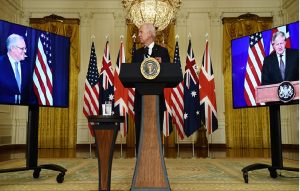 It’s already caused some backlash within the Asean group of 10 South-East Asian nations.
It’s already caused some backlash within the Asean group of 10 South-East Asian nations.
Indonesia has cancelled a meeting with Australia’s Prime Minister Scott Morrison, and Malaysia has warned the pact is a “catalyst for a nuclear arms race”.
Analyst James Chin, from the University of Tasmania, says that Aukus “reinforces the idea that the opinions of the Asean members matter little when it comes to the superpowers and how they operate in the region”.
That said, some analysts say many smaller Asian nations are happy for the US, UK and Australia to make bold moves.
“In private, the pundits will tell you: ‘We think you Australians are clod-hopping, ham-fisted and culturally insensitive but we don’t dislike what you’re actually doing. We just dislike how you’re doing it, we’d like you to talk to us before you do it so we feel more included and appreciated,'” says Prof Blaxland.
Most experts say Australia has mishandled its diplomacy around Aukus. It also gravely offended France in reneging on the previous submarine deal.
That’s a poor sign, experts say, because international relations is as much about diplomacy, as it is about military pacts.
It is in Australia’s interests – and other democracies, for the US to maintain its dominance in the region, analysts say but scholars are fundamentally divided on the best way to achieve that.
Some say a more cautious approach is needed; more hawkish voices say China won’t respond to anything but a show of force.
One thing seems certain; we’re headed for a period of greater tension.
“We’re used to East Asia being a place of calm in a world. That’s no longer going to be true,” says Prof Gyngell.
“So, foreign policy and defence is going to impinge more on the lives of ordinary Australians than it has in past decades. Things are coming closer to home.”
 Pressmediaofindia
Pressmediaofindia
